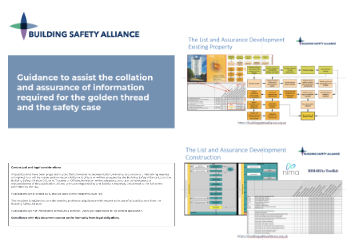House in multiple occupation
Contents |
[edit] Overview
According to Gov.uk, a house in multiple occupation (HMO) is:
| … a property rented out by at least three people who are not from one ‘household’ (e.g. a family) but share facilities like the bathroom and kitchen. It’s sometimes called a ‘house share’. |
An HMO is defined as ‘large’ if:
- It is rented to five or more people who form more than one household.
- It is at least three storeys high.
- Tenants share toilet, bathroom or kitchen facilities.
Landlords must have a licence from the local authority if they are renting out a HMO. A licence is valid for up to five years. Unlimited fines can be imposed where an HMO is not licensed.
Landlords must:
- Ensure the house is suitable for the number of occupants (size and facilities).
- Ensure the manager of the house is considered to be ‘fit and proper’ (i.e. there is no criminal record, or breach of landlord laws or code of practice).
- Send the council an updated gas safety certificate every year.
- Install and maintain smoke alarms.
- Provide safety certificates for all electrical appliances when requested.
The council may add other conditions when they consider an application. If landlords disagree with any conditions they can appeal to the First-Tier Tribunal.
HMOs (described as ‘houses in multiple paying occupation’) fall within the sui generis planning use class. ‘Sui generis’ buildings are those that do not fall within any particular use class. The Latin term 'sui generis' means ‘of its own kind’.
See Sui generis for more information.
Minimum room sizes and other restrictions apply to HMOs. See Minimum room size for more information.
[edit] Updates
In October 2018, following legislation introduced by the Ministry of Housing, Communities and Local Government (MHCLG) in September 2018, new rules came into force affecting landlords of HMOs.
Previously, only 'large HMOs' (i.e. those of more than three storeys and with five or more people forming at least two households) had to be licensed by the local housing authority. This threshold was removed by the new rules, extending the mandatory licensing of HMOs to smaller properties.
This is expected to increase the number of HMOs needing to be licensed from around 64,000 to 160,000. The government said the new rules would raise housing standards for tenants, in addition to new rules setting minimum size requirements for HMO bedrooms to tackle rogue landlords and overcrowding. However, the National Landlords Association (NLA) warned that tenants could face eviction or rent increases as a result of certification costs to landlords.
[edit] Related articles on Designing Buildings Wiki
- Core and cluster accommodation.
- Homes (Fitness for Human Habitation) Act 2018.
- Hostel.
- Housing Act 1996.
- Housing Act 2004.
- Houses In Multiple Occupation Act (NI) 2016.
- Licensing buildings.
- Minimum room size.
- Permitted development.
- Planning permission.
- Private-rented sector regulations.
- Property Chamber First tier Tribunal FTT.
- Sui generis.
- Types of building.
- Use class.
[edit] External references
Featured articles and news
Skills England publishes Sector skills needs assessments
Priority areas relating to the built environment highlighted and described in brief.
BSRIA HVAC Market Watch - May 2025 Edition
Heat Pump Market Outlook: Policy, Performance & Refrigerant Trends for 2025–2028.
Committing to EDI in construction with CIOB
Built Environment professional bodies deepen commitment to EDI with two new signatories: CIAT and CICES.
Government Grenfell progress report at a glance
Line by line recomendation overview, with links to more details.
An engaging and lively review of his professional life.
Sustainable heating for listed buildings
A problem that needs to be approached intelligently.
50th Golden anniversary ECA Edmundson apprentice award
Deadline for entries has been extended to Friday 27 June, so don't miss out!
CIAT at the London Festival of Architecture
Designing for Everyone: Breaking Barriers in Inclusive Architecture.
Mixed reactions to apprenticeship and skills reform 2025
A 'welcome shift' for some and a 'backwards step' for others.
Licensing construction in the UK
As the latest report and proposal to licence builders reaches Parliament.
Building Safety Alliance golden thread guidance
Extensive excel checklist of information with guidance document freely accessible.
Fair Payment Code and other payment initiatives
For fair and late payments, need to work together to add value.
Pre-planning delivery programmes and delay penalties
Proposed for housebuilders in government reform: Speeding Up Build Out.
High street health: converting a building for healthcare uses
The benefits of health centres acting as new anchor sites in the high street.
The Remarkable Pinwill Sisters: from ‘lady woodcarvers’ to professionals. Book review.
Skills gap and investment returns on apprenticeships
ECA welcomes new reports from JTL Training and The Electrotechnical Skills Partnership.
Committee report criticises UK retrofit schemes
CIOB responds to UK’s Energy Security and Net Zero Committee report.
























